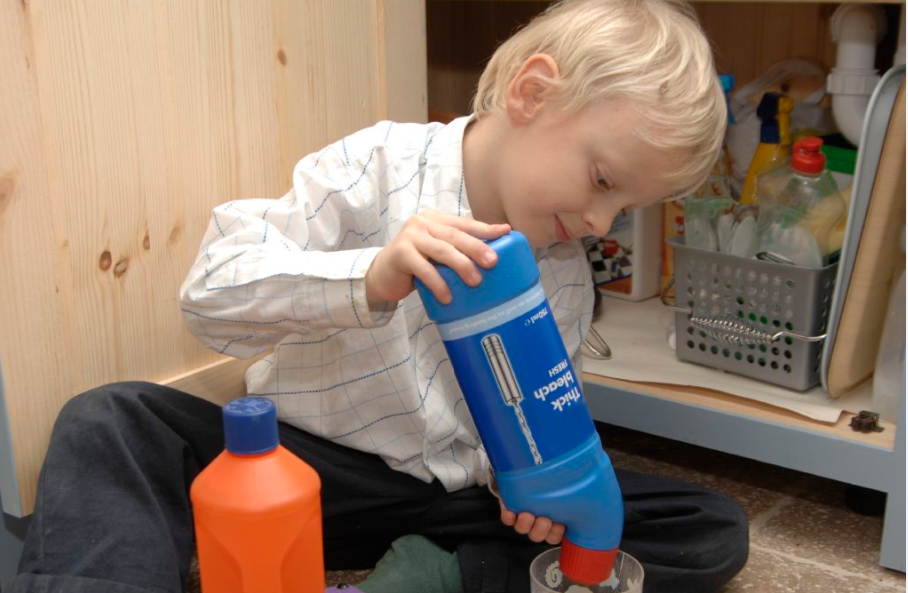
What is The National Poisons Information Service (NPIS)? What does it do for public health and how does it work? Director of the service’s Newcastle Unit Professor Simon Thomas explains.
What is NPIS?
Every day hundreds of people present to NHS services following exposure to a drug or chemical. That could be due to accidental exposure to a substance, drug dosing errors, drug misuse, drug overdose or environmental or occupational exposures.
Due to the very large numbers of substances that may be involved, it is essential that healthcare professionals have access to accurate and evidence-based information which allows them to assess and manage each case appropriately. That’s why NPIS exists - to provide round-the-clock information and management advice.
How can NPIS information be accessed?
We have an internet database called TOXBASE, which provides evidence-based information on thousands of drugs and chemicals and which can also be accessed through an app.
If further advice is needed, there is a helpline which allows access to a trained specialist in poisons information or, when necessary, a consultant clinical toxicologist.
How much demand is there for NPIS services
We receive tens of thousands of queries/calls each year, with NHS 111, NHS 24 and NHS Direct staff, hospitals and primary care professionals the most frequent users.
Online there were 602,012 TOXBASE user sessions and 1.69 million page loads of TOXBASE entries during 2016/17. The TOXBASE app was relaunched in September 2015 and since then registrations have significantly increased from 23,000 accesses in 2015/16 to 80,929 in 2016/17.
What impact does the work of NPIS have?
Each year NPIS charts trends in its annual reports. This year we have analysed the impact of the service on referrals from primary care to hospital emergency departments. From a survey of more than 2,000 phone referrals from primary care we have estimated that use of NPIS lead to an 18% reduction in referrals to emergency departments.
There were also significant reductions in referrals to GPs (-15%) and pharmacies (-3%). Across a full year this equates to almost 6,000 avoided visits to A&E and a financial saving of about £1m on the basis of minimum NHS reference costs alone. A survey of TOXBASE users also demonstrated that use of the website produced reductions in emergency department referrals and substantial cost savings.
What trends/developments has NPIS seen this year?
Every year the service presents trends in poisonings and looks out for new developments to make clinicians aware of.
In the year 2016/17 it reviewed the impact that changes in the legal status of Novel Psychoactive Substances had on queries from treating clinicians – it found there was drop in queries related to some products but concluded it may be too early to say if that was due to the change in the law.
One area we have long warned about and continue to do work on is to understand the potential adverse effects, particularly among children, of exposures to potentially harmful household products, which continue to be common. Examples are dishwasher tablets, liquid laundry capsules, automotive screenwashes, oven cleaners and button batteries.
Our annual report shows that between 2008 and 2015 we received almost 500 phone queries about soluble film automatic dishwashing tablets with 92% relating to young children.
Children under five also made up 26% of cases involving exposure to screenwashes for cars. There were also 20 cases of children under five ingesting ‘button batteries’ in 2016/17 – a figure which has been consistent for several years now.
Fortunately, few of the children involved developed severe adverse effects and national statistics demonstrate that deaths from poisoning in children remain rare. However our data highlight the need for potentially hazardous household products to be looked after carefully, ensuring that young children cannot access them. The NPIS has published detailed advice for parents and carers on preventing childhood poisoning from household or garden products. These leaflets also highlight some other examples of potentially toxic products and give useful first aid advice.
We should all remember that some household and garden products are toxic and have the potential to cause some very significant effects. That’s why NPIS believes that healthcare professionals, those work in public health, and people who look after children should all think more about what we can do to minimise the risk to children from unintended exposure to potentially harmful substances.
Get more information about TOXBASE.
